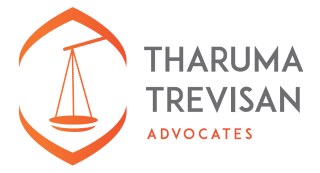
THE JURISDICTION OF THE RENT RESTRICTION TRIBUNAL
By
Quincy J. Kiptoo and Tabitha Ayiera
“Jurisdiction is everything. Without it, the Court has no power to make one more step. A Court lays down its tools in respect of the matter before it the moment it holds the opinion that it is without jurisdiction” Justice Nyarangi in the case of Owners of Motor Vessel Lillian S -vs- Caltex Kenya 1989 eKLR
1. The Black’s Law Dictionary defines Jurisdiction as ‘the power and authority constitutionally conferred upon (or constitutionally recognized as existing in) a Court or Judge to pronounce the sentence of the law, or to award the remedies provided by law, upon a state of facts, proved or admitted, referred to the tribunal for decision and authorized by law to be the subject of investigation or action by that tribunal, and in favor of or against persons (or a res) who present themselves or who are brought, before the Court in some manner sanctioned by law as proper and sufficient.’
2. The Australian Legal Dictionary Sydney Nygl PE Butt, 1997, contextualized the doctrine of jurisdiction to resolve disputes to involve the following:
“The scope of the court’s power to examine and determine the act, interpret and apply laws, make orders and declare Judgments. Geographical area, the type of parties who appear, the type of relief that can be sought and the suit to be decided may limit jurisdiction.”
3. Jurisdiction is thus, the power that a decision making body must possess to be able to adequately adjudicate a dispute between two parties.
4. The Rent Restriction Tribunal is established under Section 4 of the Rent Restriction Act, CAP 296 Laws of Kenya. The object of the title is that it is an Act of Parliament to make provision for restricting the increase of rent, the right to possession and the exaction of premiums, and for fixing standard rents, in relation to dwelling houses, and for other purposes incidental to or connected with the relationship of landlord and tenant of a dwelling house.
5. In assessing the Jurisdiction of the Rent Restriction Tribunal, it must be noted that the Supreme Court in Samuel Kamau Macharia & Another –vs- KCB & 2 Others opined that
“A Court’s jurisdiction flows from either the constitution or legislation or both”
6. Further to the above, in Desai -vs- Warsama [1967] E.A 351, it was ruled that:
“No court can confer jurisdiction upon itself and where a court assumes jurisdiction and proceeds to hear and determine a matter not within its jurisdiction, the proceedings and the determination are nullities.”
7. The question of jurisdiction is therefore a threshold issue and must be determined at the threshold stage. In this regard, Section 2. (1) of the Rent Restriction Act posits thus:
“This Act shall apply to all dwelling-houses, other than –
(a) excepted dwelling-houses;
(b) dwelling-house let on service tenancies;
(c) dwelling-houses which have a standard rent exceeding two thousand five hundred shillings per month, furnished or unfurnished.”
8. Standard rent is defined in Section 3 (1) of the Act as:
“Rent at which premises were let on 1st January, 1981 and if as at 1st January, 1981 the premises were not let or not erected or it cannot be determined whether they were let or erected, such rent as may be assessed by the Honorable Tribunal.”
9. Standard Rent can be deduced by the respective lease and/or tenancy documents between the Parties. If the same is disputed and cannot be inferred from the circumstances, the Tribunal may order that the property be assessed for rent by a government valuer.
10. It is clear for the provisions of the Rent Restriction Act that it establishes protected tenancy status for tenancies on dwelling houses with low rent values with a view to protecting such tenants from exploitation by way of arbitrary increase of rent and eviction from their dwelling houses whose standard rent is less than Ksh. 2,500.
11. A deep research into the scheme of legislation in this area reveals that the Rent Restriction Tribunal as established under the Act is a creature of statute and has no inherent jurisdiction. The Tribunal has only such jurisdiction as is expressly given to it by the legislature.
12. Jurisdiction cannot be conferred by the consent of the parties or be assumed on the grounds that parties have acquiesced in actions which presume the existence of such jurisdiction.
13. Be that as it may, it is unsurprising to find that the majority of disputes at the Rent Restriction Tribunal are of premises whose rent exceed Kshs. 2,500. It usually results in administrative chaos as a Tribunal without jurisdiction equally purports to entertain the same.
14. The Supreme Court in its Advisory Opinion, In the Matter of Advisory Opinion of the Supreme Court, Constitutional Application No. 2 of 2011, restated the principle in the “Motor Vessel “LILLIAN S case”, in the following terms –
“The “Lillian S” case [1989] KLR, establishes that jurisdiction flows from law and the recipient court is to apply the same with any limitation embodied therein. Such a court may not arrogate to itself jurisdiction through craft of interpretation or by way of endeavour to discern or interpret the intention of Parliament where the wording of legislation is clear and there is no ambiguity”.
15. It is time for reform of the Act as the prevailing economic rates make it close to impossible to have housing in Nairobi whose rent is a meagre Kshs. 2,500.
16. For dwelling houses that have a standard rent not exceeding Kshs. 2,500 a month the Rent Restriction Tribunal has power to:
16.1. To make provision for regulating the increase of rent, the right to possession, the exaction of premiums and fixing of standard rents in relation to controlled residential premises and for other purposes incidental thereto or connected with the relationship of landlord and tenant of a dwelling house.
16.2. To resolve disputes between landlords and tenants of controlled residential tenancies in relation to service charge, repairs of house, recovery of rent arrears, refund of deposits, eviction, recovery of possession.
16.3. Assessment and determination of standard rents of residential premises.
16.4. Investigation of complaints where the provisions of the Rent Restrictions Act have been flouted.
CASE LAW
17. In the case of Republic -vs- Chairman Rent Restriction Tribunal & another Ex-Parte Ezekiel Machogu & 3 others [2013] eKLR, the standard rent of the suit property was Kshs. 3,000. In upholding the Claim, the Honorable Court ruled that:
“The chairperson of the Tribunal appreciated that the issue in the matter concerned whether the agreed rent of Kshs. 3,000/= should have been raised to Kshs. 3,500/=. Although section 5(1)(a) of the Act empowers the Tribunal to assess the standard rent either on application of any person interested of its own motion, the case before it did not call for assessment of the standard rent as the rent was already agreed upon as between landlord and tenant (see Gershuni v Ombima [1975] EA 135 and Shah v Aggarwal CA Civil Appeal No. 60 of 1981 [1983]eKLR). I therefore find and hold that the amount of rent and the fact that it was agreed removed the subject premises from the definition of standard rent prescribed by the Act and therefore from the jurisdiction of the Tribunal. The Tribunal cannot appropriate jurisdiction to investigate or asses rent where the rent agreed by the landlord and tenant is above the standard rent as defined by the Act.”
18. In the case of Republic -vs- Rent Restriction Tribunal ex-Parte Simon Ngure Ngatia & another [2014] eKLR, the standard rent of the suit property was found to be Kshs. 8,500. Justice Muriithi held that the Rent Restriction Tribunal did not have jurisdiction to determine that dispute. In upholding the Notice of Motion Application, he ordered that:
“The ex parte applicant’s Notice of Motion dated the 9th October 2013 is allowed to the effect that an order of certiorari issues to remove into the High Court for the purposes of quashing all proceedings and any orders made in the Rent Restriction Tribunal at Mombasa Case No. 112 of 2013 between Mercy Rucha and Simon Ngure Ngatia”
19. In the case of Republic -vs- Deputy Chairman Rent Restriction Tribunal; Butrus Juma (Interested Party) Ex Parte Joseph Kagwatha [2019] eKLR, the standard rent of the suit property was Kshs. 25,000. In upholding the application and dismissing the suit, the Court ruled that:
“It is not in dispute that the interested party was paying a monthly rent of Kshs.25,000 per month. This is clear from the tenancy agreement marked as annexure JK2 to the ex-parte applicant’s supporting affidavit. Section 2(1) of the Rent Restriction Act (Cap 296 Laws of Kenya) is clear that the Act shall apply to dwelling houses which have a standard rent of Kshs.2,500 per month, furnished or unfurnished. It is also clear that the standard rent could not be assessed by the tribunal in the instant case since the rent has already been agreed upon by the landlord and tenant.” It is therefore not in doubt that the tribunal lacked jurisdiction to entertain the interested party’s application.”
20. In the case of Peter John Hayward -vs- Sarah Wangui Ndung’u [2019] eKLR, the rent being paid was Kshs. 25,000, upon assessment the standard rent was held to be Kshs. 40,000. In upholding the appeal, the Honorable Court ruled that:
“In the instant appeal, the respondent initiated proceedings in Rent Restriction Tribunal Mombasa against the appellant. The Respondent alleged that the property leased to the appellant currently being rented at Kshs 25,000/- should be reassessed largely to assist her enhance the rates for the property.
In exercising its jurisdiction, the Tribunal relied on the provisions of Section 3, (2) (1) (iv) of the Rent Restriction Act. Whilst the Respondent was keen to have the suit property assessed by a valuer from the tribunal, unfortunately her relationship with the appellant was governed by the tenancy agreement. Different rules and regulations apply to uncontrolled tenancy like the one entered into between the appellant and respondent in matters of disputed premises.
The tribunal even on its widest interpretation of the statute cannot exercise jurisdiction on uncontrolled leased properties. Personal jurisdiction can only be exercised directly in proportionate with subject matter jurisdiction.
Without discerning the merits of the appeal, it is clear from the foregoing that the tribunal’s penultimate ruling interpreting Section 3 of the Act was functionally exercised without jurisdiction. As the tribunal lacked subject matter jurisdiction it ought not to have entertained the action. Accordingly, the appeal is allowed. The proceedings before the Rent Restriction Tribunal quashed with costs to the Appellant.”
Latest Posts
Step by Step Guide to Subdvision of Land in Kenya
Agnetah Muli LL. B, KSL Dip. What is Subdivision? The process of subdivision involves the division of land into two or more parcels. The purpose is to...
COMPREHENDING REDUNDANCY IN EMPLOYMENT LAW – KENYA
“Fairness in all forms of termination is the staple of labour law”- Anon By Quincy Jesse Kiptoo LL.B. (Hons), CPM, Dip in Law The word Redundancy...

